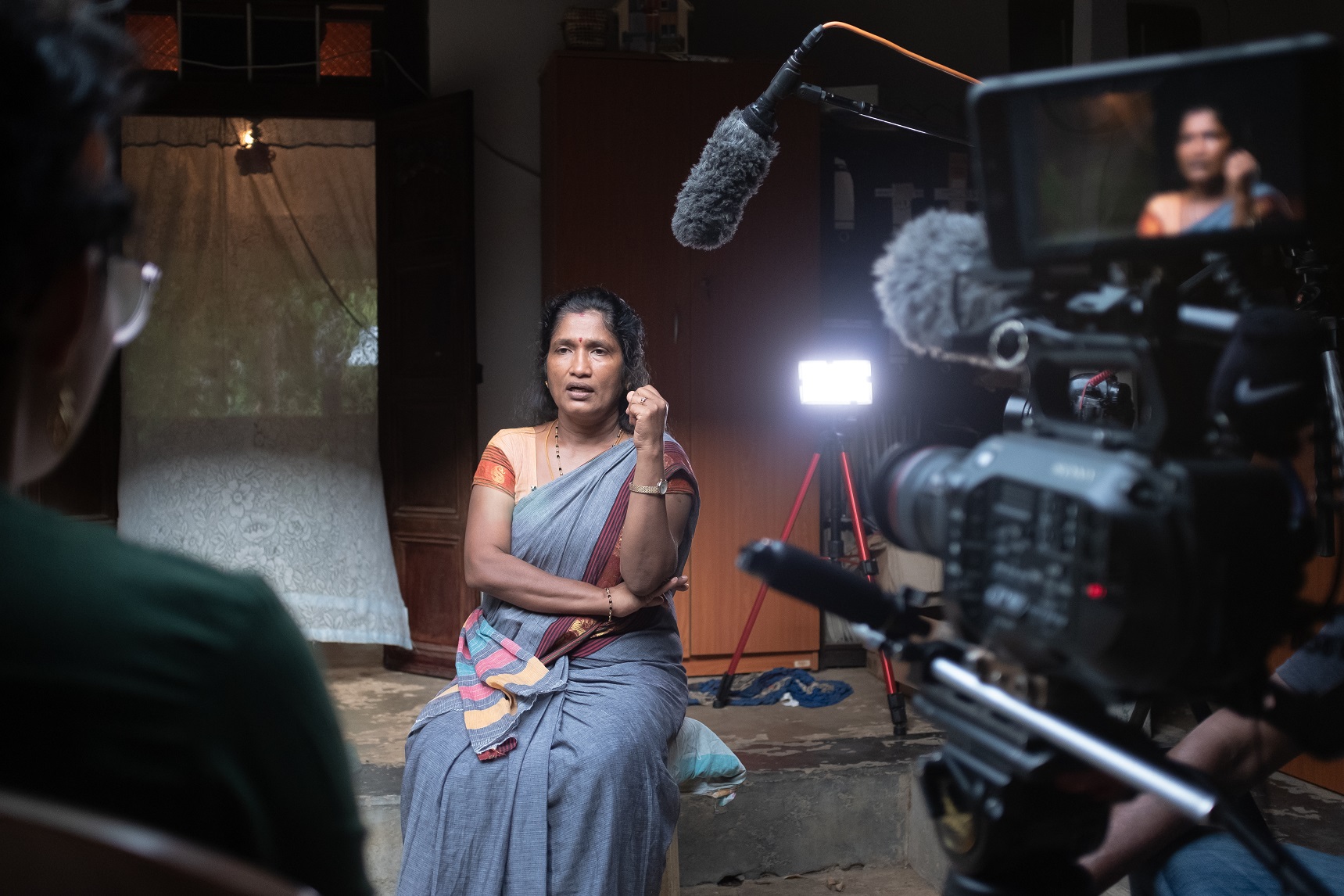Filmmaker Kannan Arunasalam has released his latest documentary, entitled ‘Sri Lanka’s Rebel Wife’, on Al Jazeera Witness this week, following Tamil politician and human rights activist Ananthy Sasitharan, as she continued her fight to seek justice for her forcibly disappeared husband.
He spoke to the Tamil Guardian on his experiences of filming the documentary despite military surveillance, the struggle that Tamil families face when trying to find answers for disappearances and on Sasitharan’s continued fearlessness.
Read his full interview below.
What is the message you want to get across with this film?
My goal was to tell the story of the single biggest disappearance event in the history of the conflict, and through that, to shine a light on the egregious issue of enforced disappearances in Sri Lanka. According to the International Truth and Justice Project, some 500 men, women and children who went missing at that time disappeared because they were Tamils.
But also, I wanted to say something about our wish for moral clarity. I want the film to help us move beyond a binary idea of victims and perpetrators and perhaps towards a more multifaceted understanding of someone’s conflict affectedness. If we cannot to do that, we will continue to be haunted by the myriad horrors that have taken place in Sri Lanka.
In Ananthy I found a fierce and charismatic protagonist for my film, and a relentless champion of the cause of the disappeared. Through her activism she represents tens of thousands of disappeared Tamils. But she is also an “inconvenient victim” and I found that fascinating to explore. The short film only hints at those and raises more questions than it answers.
.jpg)
How was the experience of actually shooting and filming the documentary?
I’ve been following Ananthy’s story since 2016. I followed her into the byzantine court system in Mullaitivu and Vavuniya and sat through the callous cross-examination by government lawyers. We weren’t allowed to film inside the courtroom, but I heard them ask Ananthy and the mothers, “what was the number plate of the bus that you say took away your family?”
One of the poignant moments in the film is when they are at the scene of the war crime and they describe what happened when they handed over their loved ones. The women finish each other’s sentences. It was in stark contrast to their experience in the courtroom just hours before.
.jpg)
We were always under surveillance outside the court. Only Tamil journalists ever bothered to show up to cover the case.
When we revisited the scene of the war crime, we were surveilled by military intelligence and intimidated in to stopping our filming. It was a little scary but we carried on, buoyed by Ananthy Akka’s fearlessness.
But it worked the other way round too. During the elections, our presence as a small film crew helped Ananthy. She told us to keep close to her, especially when she was being followed by the military towards the end of her campaign.
Ananthy’s journey continues and whenever you meet her and the mothers — a single question comes up. They want to know when their story is going out in to the world. So I felt compelled to produce this short version for Al Jazeera Witness where her message will reach a huge international audience. But I also hope to continue following Ananthy’s journey and one day make a film that explores fully the nuances that her remarkable life throws up.
.jpg)
Given the current situation in Sri Lanka and the international focus on the economic and political crises, are there any lessons you want viewers to take from this film?
At the very least, the international community needs to recognise and accept that this disappearance event took place. Sri Lanka has stubbornly and callously refused to accept it happened at all. The film makes clear that the prospects for Tamils for receiving justice in Sri Lanka is non-existent. In fact, the state continues to demonise former Tamil Tiger cadres and their families, like Ananthy and her daughters.
I’ve seen some of the early responses to the film on WhatsApp protest groups. The genuine empathy for disappeared communities is encouraging. I hope that will grow. If you see this film, and remain unaffected by it, you may be complicit.
This disappearance event should fill Sri Lankans with immense shame. But the obstacles for Ananthy in getting justice speaks to the wider persecution of Tamils.
_____
The documentary can be watched via Al Jazeera Witness below.
We need your support
Sri Lanka is one of the most dangerous places in the world to be a journalist. Tamil journalists are particularly at threat, with at least 41 media workers known to have been killed by the Sri Lankan state or its paramilitaries during and after the armed conflict.
Despite the risks, our team on the ground remain committed to providing detailed and accurate reporting of developments in the Tamil homeland, across the island and around the world, as well as providing expert analysis and insight from the Tamil point of view
We need your support in keeping our journalism going. Support our work today.
For more ways to donate visit https://donate.tamilguardian.com.


